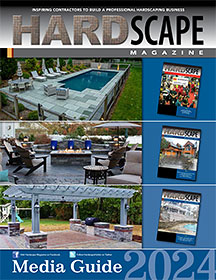Articles Written by Charles Vander Kooi
You Are Low Bidder - So What!!!
By Charles Vander Kooi
One of the worst things you can do after you've turned in your bid on a project is to walk away from it, go back to your office, and wait for a contract. This is true even if you are the low bidder and there are no alternates up or down that would change that fact. If you do, you may never see a contract.
If you find out that you are the low bidder, you should always ask 3 questions. Question number one is, "What's the budget?" Even though a budget may have been published or spoken of earlier, I have found that sometimes the actual construction budget is very different from what was published. Now, the answer to this first question is usually a figure that is lower than my low bid.
That leads me to my second question, "What are you going to do about it?" I also know the usual answer to that question. "We don't know. We had a budget of $__________. We'll have to take another look at it. We can only spend $__________."
Then I ask a third question, which concludes with an emphatic statement: "Can we talk about it? I will do you a job for $______ (whatever their budget is)."
What Were They Thinking?
You must understand the psychology involved at a bid opening where you are low bidder but you are over the budget. At that moment, you are the only sane person in the room. Everyone else has the lights on, but nobody is home. It is up to you to pick up the fumbled football and run with it.
To further understand the psychology, we need to look at the frame of mind of the others.
The Architect - When your low bid is over the architect's budget, one thought quickly flashes into his mind. You are a crook. You are trying to get rich on his project. It doesn't matter that there are 6 other bidders with higher prices than yours, you are a crook. I've had them get up and look out the window to see if I drove up in a Mercedes 380 SL.
The Owner - To understand the owner, you must imagine the following scenario. Let's say that someone from home called you at the office and gave you a list of 5 things that you were to pick up from the store on your way home. If you didn't pick them up, no dinner tonight. After you get off of work, you go by the store, pick out the items, and go to the fast lane to be checked out. The articles are rung up for a total cost of $13. You look into your billfold and there sits a lonely $10 bill, $13 on the cash register, $10 in your billfold. Ten other guys are all standing in line anxiously looking at you and they are wondering what the hold up is all about.
That's exactly how an owner feels at the moment your low bid is opened. $130,000 is the low bid, and there is $100,000 in the bank as a loan commitment; or $1.3 million is the low bid, but there is only a $1 million budget. The owner has made commitments to his bank. He has done market surveys on what he can rent or sell his project for based on the local market. Everything revolves around that budget and now you want more money. Pick up the football and run with it by asking the 3 questions.
3 Questions Put into Practice
I remember bidding a job in March several years ago. The project was for the site development around some old houses on an abandoned street. In this particular city there were several satellite campuses from nearby universities. It was decided that one major campus would be built near the downtown section of this city and then they would pool all of these satellite schools onto one campus.
Now, in this city there was a committee of high-society ladies who went about preserving old historical buildings for posterity. And, right in the middle of this campus project were 8 old houses and an old neighborhood store. This committee of ladies pleaded with the owner not to tear down those old buildings. They offered to raise money to restore the buildings and build a park around the outside. They would then give the buildings back to the owner to be used as offices for the college. Great idea!
They established an August 1st date for a great ceremony in which they would hand back these buildings and park to the college. A big, high-society gala event was planned with important people from everywhere invited. It was the middle of March and they were just letting the bid on the exterior site work.
You are the Lonely Bidder
I showed up with my bid 10 minutes before the 2pm opening. At 2 o'clock I realized that I was the only dummy there.
"Mr. Vander Kooi, do you mind if we wait 10 minutes to see if anyone else shows up?" they asked.
"Please do," I said. "In fact, I'll call some people if you want me to." (I don't like to be the only bidder.)
Fifteen minutes went by and no one else showed up. It was decided that they would open my bid anyway. When my bid of $225,000 was opened, I knew something was very wrong. The architect gave me a look I will never forget. It said, 'You're a big, huge crook!' I've never seen a look like that before or since that day. It nailed me to the wall and sent a cold chill up and down my spine.
The chairwoman of the committee was also at the bid opening. She was wearing a mink stole and smoking a cigarette through a long cigarette holder. When they opened my bid she let out such a large sigh I thought the cigarette she was smoking would go flying through the air at me.
I said to myself, 'Something is wrong. These people do not look very happy.' So, I asked my first question almost out of curiosity. "What's the budget?" The high-society lady sheepishly responded, "$135,000." A $90,000 difference between my bid and their budget.
Trying not to be sarcastic I asked my second question, "What are you going to do about it?" The architect could not even talk, so the high-society lady responded, "We don't know. We have raised money and we have commitments to our donors. We have a gala event all planned for August 1st."
Now, I should have just closed up my briefcase and gone home. However, I talk faster than I think, so I had already asked, "Can we talk about it? I will do a job for you for $135,000." We agreed to meet the next day at 9am in the architect's office.
The First Feeble Job Cuts
I arrived at the meeting with the high society lady and architect at 9am sharp. The architect must have set his face in concrete all night because the minute I walked in I received the same look that said, "You're a crook!"
Well, I said, "Let's get started. We've got $90,000 to cut out of this job."
For the first time since the bid opening, I heard the architect talk. He said, "I've been thinking about this all night." "I bet you have," I thought. "There are 3 trees over here. I think we can get by with 2. How much will that save us?"
"$200," I responded.
"Well, I've noticed that some of these shrubs will really grow tall and I have them 4-foot on center. I think I can spread them out to 6-foot on center. How much will that save us?"
"$280," I said.
"These back patios," he said, "They're 8' x 8'. I think I can get by with 6' x 6' without hurting the integrity of the project. How much will that save us?"
"$450," I said.
And after 2.5 hours we had only managed to cut $20,000 from the bid. It was 11:30am and my stomach was starting to growl for lunch. "Any more ideas?" I asked the architect. "No," he replied.
Enter "The Job Slasher"
Now, you have to understand that when you start cutting on a project, you are actually cutting open the architect's chest and ripping out his or her heart. The architect has designed this project to look just right, just as it is. When you take things out, you are ruining his or her beautiful project and it is losing its integrity. You're slitting their wrists and they are bleeding to death.
The architect sagged into his chair and I could tell he had been bled to death. My moment had arrived! You see, I had been thinking about it all night, too. I had been in my office early that morning to prepare my own list of cuts. So, I reached into my briefcase to get my list with copies for everyone.
I said, "Here is a list of $90,000 worth of gutting (not cutting) that you must do if you're going to do this project. I'm leaving for lunch. You think about it over the weekend. I'll be in my office Monday morning at 8am. If you want us to do the project, you call me then and we'll have a crew out here on Tuesday and have it done by August 1st. If you don't, go ahead and re-bid the project; but I won't be here next time." Then I got up and left.
Give me the Budget Anytime
At 8am Monday morning my phone was ringing. It was the chairwoman of the high-society committee and she was excited.
"Mr. Vander Kooi," she said, "We went out this weekend and raised another $10,000 and we want to award you a contract and buy back $10,000 worth of your cuts." Now we were starting a job on a positive note by adding back on to the job. We signed a contract, had a crew on the job Tuesday, and finished 2 days before the August 1st event.
I'm proud of that job for 2 reasons. First, it's a good-looking job. It's still there and I point to it with pride. Secondly, that was the highest profit percentage on any job that contractor ever did. In fact, the profit exceeded the cost.
It was only possible because I asked 3 questions. What's the budget? What are you going to do about it? Can we talk? I will do a project for you for whatever your budget is .
Why Bids don't Match Budgets
There are 2 major cycles in the construction industry. It seems that for 6 months, everything you bid is under the engineer's estimate. Your bid is $50,000; they have a budget of $55,000. Your bid is $1,125,000; they have a budget of $1,200,000. Then for 6 years , everything you bid is over the budget by 5% to 20%.
I know why that happens. However, I can't seem to convince architects and engineers as to why it happens. Today they are designing projects that will not bid for a year, maybe 2. They are using budgetary figures from cost indexes-or bids-that are 6 months to a year old. So, when the project comes out to bid, the budget is based on figures from 2 to 3 years earlier. No one can accurately compensate for the change in costs over that timeframe.
I recommend that architects and engineers spend a few extra dollars and have an estimator -or an estimating consultant who is in the trade-put together their budget figures just prior to putting out a bid. That way, changes can be made before bid documents are assembled and before contractors spend money on the bid process.













